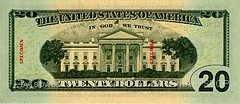Three Fundamentals of Putting Speed Control
Putting Speed Control is a critical skill for great putting!
- by sbwoodside under CC BY-SA with WPSEOPix
Many of you probably saw Tiger 3 putt a hole from about 5 feet on Saturday at the Memorial Tournament. And surely you have seen Phil miss short putts, in the past, when he has attempted to ram them into the hole.
So, is it just that these guys did not hit the ball on line on their putts when they hit them firm? Or are there other principles at work, that work the same for you and me, related to speed control? That are important for short putts but maybe – for us mortals – even more important for every putt we hit?
There seem to be, to me, three fundamental things that all golfers should understand related to how important Speed Control is in putting. Many argue that it is THE key skill that golfers need to master for their putting. Here are these three things – courtesy of the Edel Putter Fitting Training I took at the 2013 PGA Show, and courtesy of calculations done by Mark Sweeney of AimPoint:
1. As the speed of the ball crossing the hole increases, the Effective Cup Width decreases. Another term that has been used is Capture Speed. AimPoint calculations show the following:
– If you die the ball into the hole – Effective Cup Width is 4.25 inches (the full hole);
– If you putt with a speed so the ball can go 1 foot past the hole – Effective Cup Width is 2.6 inches;
– If you putt with a speed so the ball can go 3 feet past the hole – Effective Cup Width is 1.4 inches;
– If you putt with a speed so the ball can go 5 feet past the hole – Effective Cup Width is 0.5 inches.
– BOTTOM LINE – if you hit a putt with a speed so it could travel 5 feet past the hole, pretty much forget about making it.
2. One Revolution of a golf ball is about the length of a Dollar Bill (from Bobby Dean at Edel Golf);
3. One Golf Ball Revolution reduces the capture width of a golf hole by about 12%.
The very good news is that, if you have a putter that fits you well in terms of its weight and weight distribution, and it has the right loft, controlling putting speed can become as much a skill as it is a feeling – you will be amazed at how good your Speed Control can become. Unfortunately, if you do not have a putter that fits you well in terms of weight and loft, you have to adapt to it and attempt to "make" it work.
One Dollar Bill Speed Control – with the right putter, an achieveable skill!
The Fit Is IT!!
Tony

